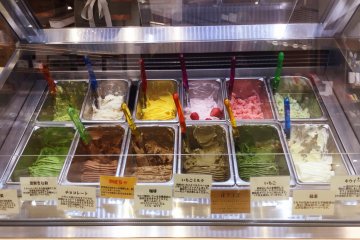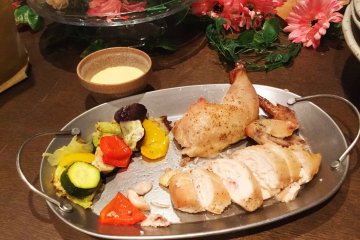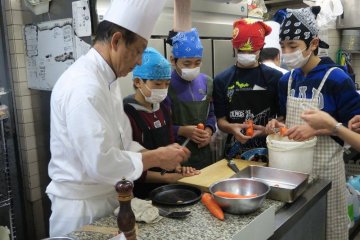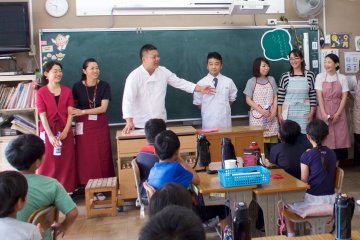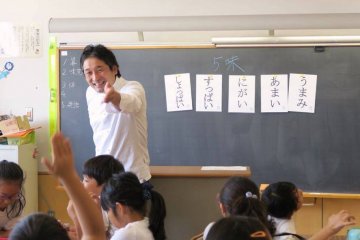I don’t know about your country, but in mine our schools don’t teach most children how to cook, much less to think holistically about how and what they eat. They don’t talk about where food is grown, or what happens to it between there and when it reaches your plate. This is why so many Americans wouldn’t know a colander from a top hat, why they eat fast food every day, and why they believe that anything could be the cause of their health issues and weight problems – except the quality of food they eat.
Expert chefs in the classroom
So when a friend told me about the Kasai Restaurant Summit, a group of Japanese master chefs and restaurant owners who, with the support of local PTAs, regularly visit public schools to dedicate their time and wisdom to educating Japanese elementary school students about food, I thought “now there’s a connection that makes sense!”
I soon learned that the Restaurant Summit was established in 2010 by restaurant owners from six districts (Abiko, Kashiwa, Kamagaya, Nagareyama, Noda and Matsudo) near Tokyo, with the above-stated mission to share their knowledge and experience in public schools. Combined, the restaurants serve over 20,000 customers every month.
Learning by doing
Then I had the opportunity to meet chef Nobuhisa Watanabe, owner of Chinese restaurant Bunsaika in Kashiwa and a regular participant in the Summit’s Kashiwa chapter, and I discovered that this program is even better than I imagined. From our conversation I learned that the participating chefs do everything from demonstrating food preparation in school kitchens – where grade school students actually join them in the preparation of the lunch for the entire school – to lecturing in classrooms about the merits of fresh food, the importance of natural ingredients, how processing and additives affect the quality of foods, and any subject that might enlighten the students to pursue healthy food choices.
Experiential Learning
Chef Watanabe, who like the other chefs in the Summit works with local schools on a purely voluntary basis every month, told me that educating kids about food is a natural thing to do, and a way to contribute to the health and future of Japan. He downplays his role, yet the kind of pure experiential learning he and other Summit members are providing has been shown to be the most effective way to impart knowledge and appreciation of any subject matter.
When moms can't teach it
As more mothers join the workforce, and more children have no way of learning the wisdom of the traditional kitchen, who can put a value on what is being lost? Educating our youth about cooking – how to select and blend ingredients, to correctly utilize kitchen utensils, to balance and maintain a healthy diet - seems like a rudimentary subject that should be emphasized in every school curriculum. That Japan’s most knowledgeable food experts – the successful restaurant chefs of a local community – are the ones doing this work in Japanese public schools, pro bono, is nothing less than brilliant.




